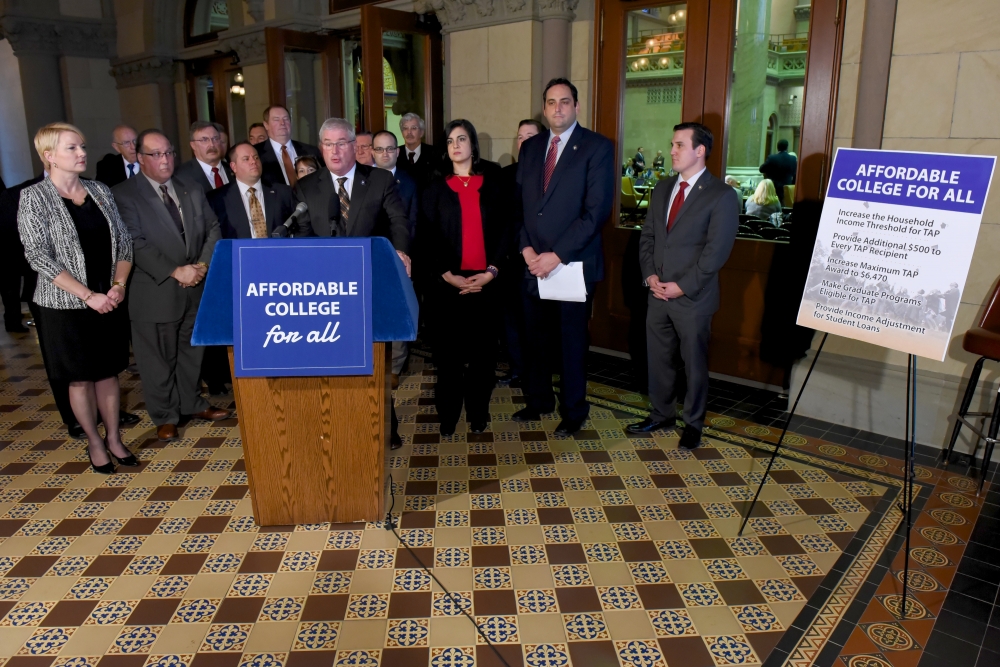Walsh and Colleagues Roll Out “Affordable College for All Initiative”
Editor’s Note: Video of Assemblywoman Walsh from today’s press conference located here
Today, Assemblywoman Mary Beth Walsh (R,C,I,Ref-Ballston) joined her colleagues to present the Assembly Minority’s plan for making higher education more affordable for middle-and lower-class families. This plan would cost roughly the same as the governor’s proposed “free” tuition plan, except it would be less geared toward “giving away” education and more focused on helping both current students and college grads.
Unlike the governor’s “free tuition” plan, the Assembly Minority’s “Affordable College For All Initiative” would help both low-income and middle-income families. The plan addresses the currently outdated Tuition Assistance Program brackets as well as decreases taxes for graduates struggling to pay off college loans. The key proponents of the plan include:
- Increasing the income threshold for the Tuition Assistance Program (TAP) from $80,000 to $125,00
- Increasing the amount of TAP given from $5,165 to $6,470
- Providing an extra $500 to every TAP Award recipient
- Providing an income tax deduction for both interest and principal amounts of student loans.
“The Assembly Minority’ plan encompasses far more young adults than the governor’s proposed plan,” said Walsh. “There are thousands of families that make too much to qualify for TAP but nowhere near enough to pay for college out of pocket. We can’t overlook these families like the governor is proposing.”
The proposed Assembly Minority plan would also provide an income tax deduction for both interest and principal amounts of student loans.
“A huge issue we see now is graduates buried in massive student loan payments,” said Walsh. “With this plan, we are able to ease the burden on these recent grads who are struggling to make ends meet. As the parent of six children, including two in college, I can appreciate that. We shouldn’t neglect one of the biggest issues our constituents are facing with higher education just because these individuals have already gone through the system.”

